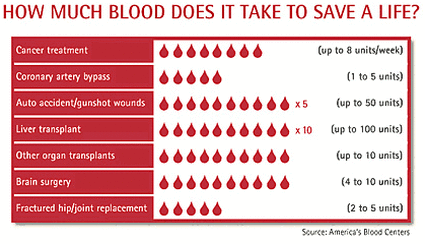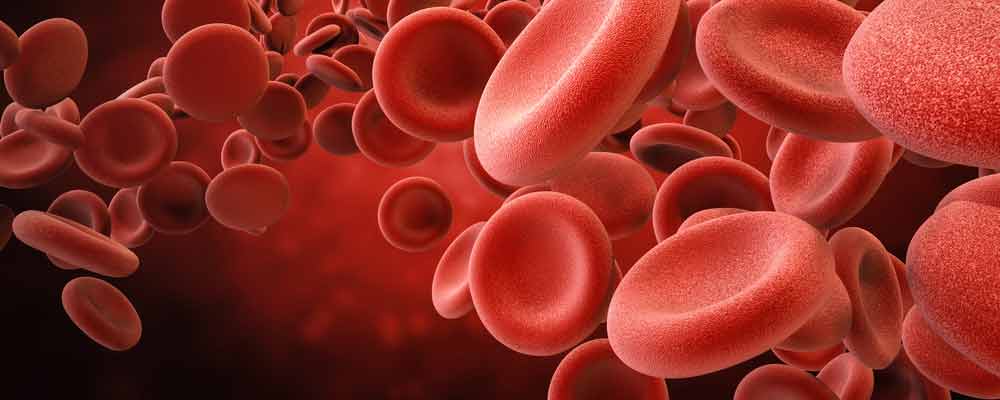You may not know it, but there is currently a severe shortage of blood in the United States.
But why? With all of the blood drives going on all over, how could there be a shortage?
The simple answer is the huge increase in demand. Ironically, the shortage is due to the success of all sorts of relatively new medical procedures.
Procedures such as chemotherapy, organ transplants and heart surgeries require as many as 100 units of blood each time they’re performed. And that doesn’t include those who need blood for transfusions and blood loss due to injuries, or anyone suffering from a blood disease.

Just last year, there were over 33,000 organ transplants, over 500,000 heart surgeries and millions of blood transfusions. All of those numbers are in steady growth mode due to increased surgical efficiency and technology. However, there’s not nearly enough blood being donated to cover the need.
Right now, the demand for blood is more than double the supply. According to the Red Cross, the amount needed daily is about 80,000 units, but there is only enough for 36,000 per day in the current supply.
This is a very serious shortage, but there could be a solution in the near future.
There have been many attempts over the past century at creating artificial blood. However, none of them ever came to fruition. The most common issue was that the hemoglobin, which carries oxygen throughout the body, did not properly release oxygen to the organs and tissues.
Now, it looks like that problem has been solved. Just last December, a team of scientists in St. Louis successfully tested a blood substitute called ErythroMer.
This substitute is by far the most successful to date, and it has already shown superior results in testing. Ten years from now, the scientist responsible for this discovery hopes to be able to test it in human trials.
Since there are no accepted blood substitutes in the U.S. right now, ErythroMer could have a huge impact on the medical world. Its most important feature is the fact that it can be frozen and stored. So once we are able to mass-produce it, there should never be a blood shortage again.
This is just one of the many fascinating breakthroughs going on right now in the biotech industry. Another amazing trend that’s set to see rapid growth and success over the next five to seven years is precision medicine, which is the future of cancer therapy.
Regards,

Ian Dyer
Internal Analyst, Banyan Hill Publishing




